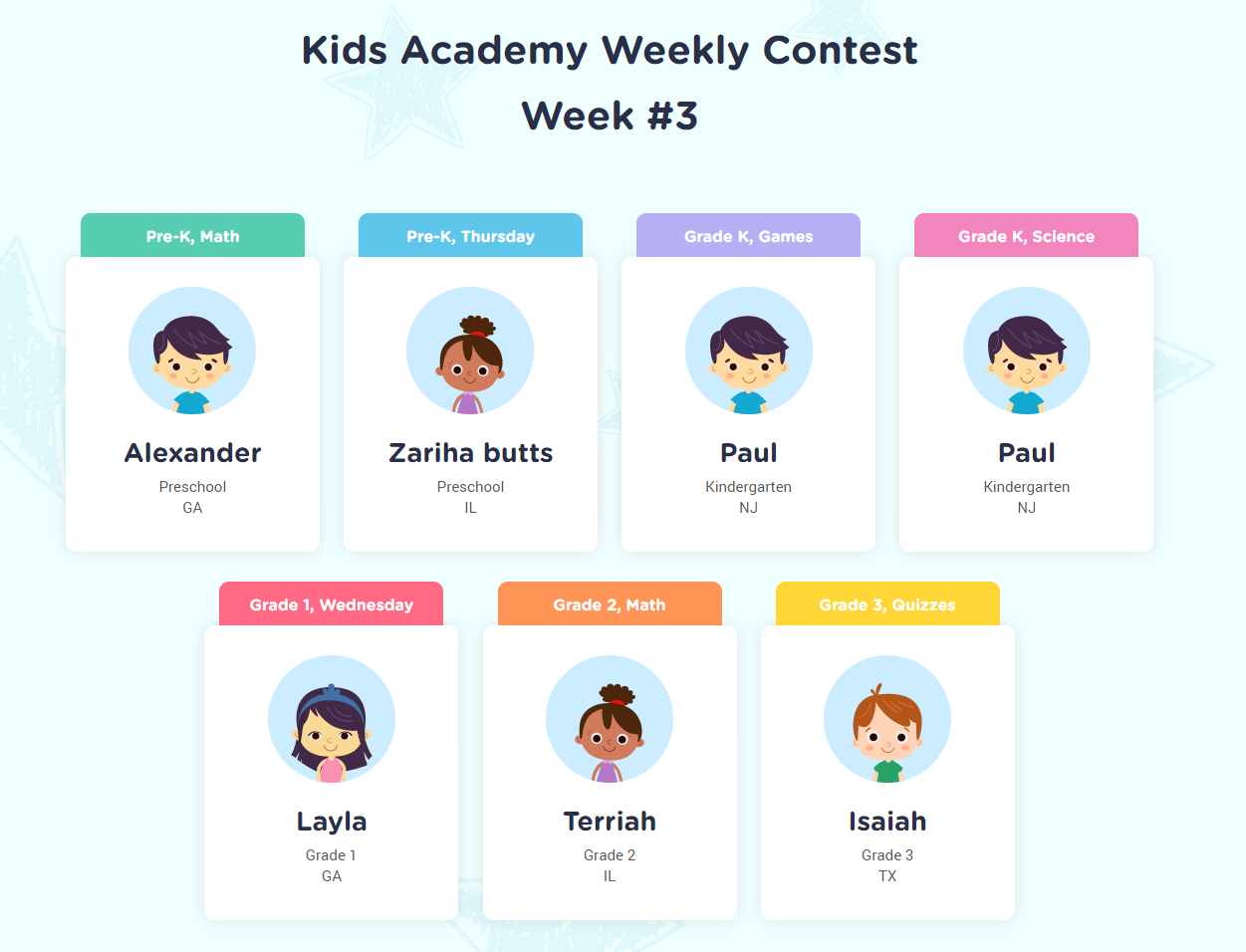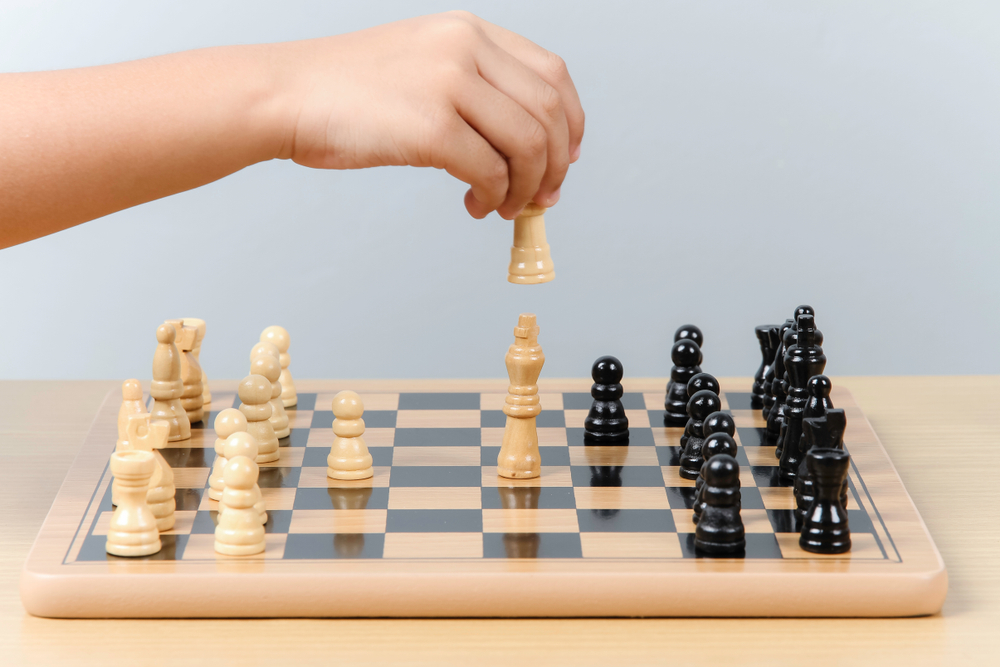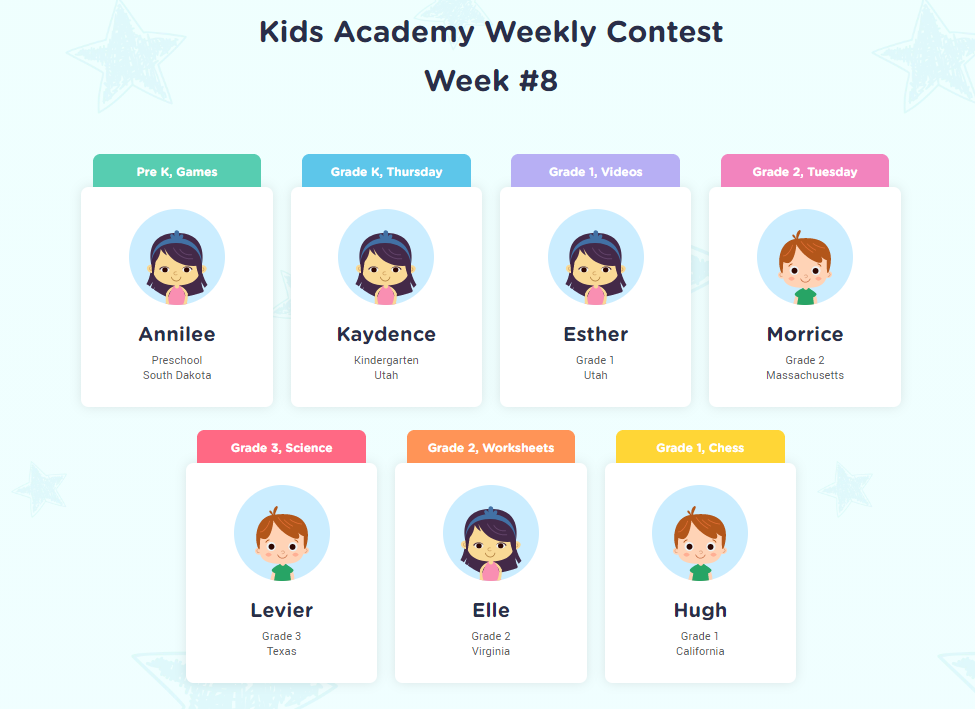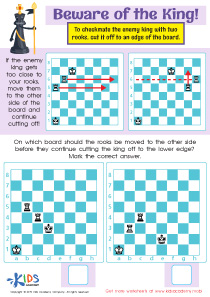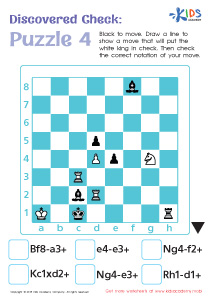Chess strategy understanding Easy Chess Worksheets for 6-Year-Olds
3 filtered results
-
From - To
Introduce your 6-year-old to the fascinating world of chess with our easy and engaging Chess Strategy Worksheets. Specifically designed for young minds, these worksheets simplify the complex game of chess into fun, manageable lessons. Kids will learn fundamental strategies, piece movements, and essential game tactics designed to boost their critical thinking and problem-solving skills. Crafted to make learning enjoyable, our printable resources offer step-by-step guides and delightful illustrations to capture their interest. Watch your child master the basics of chess while developing patience, concentration, and strategic thinking—turn every lesson into an exciting journey of discovery!
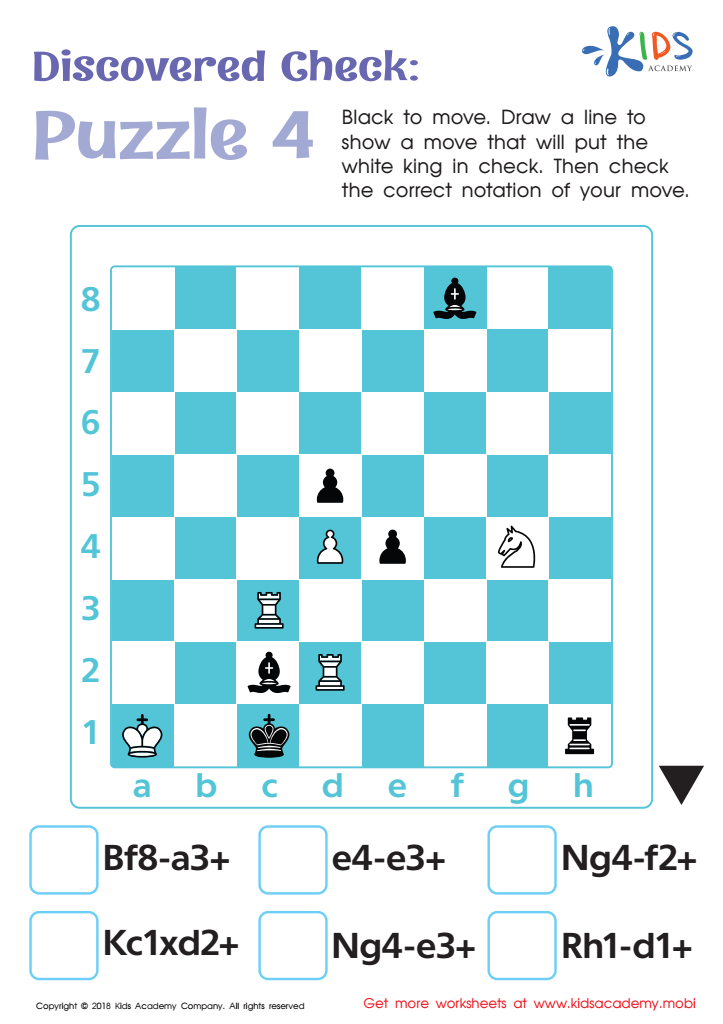

Discovered Check: Puzzle 4 Worksheet


Discovered Check: Puzzle 2 Worksheet
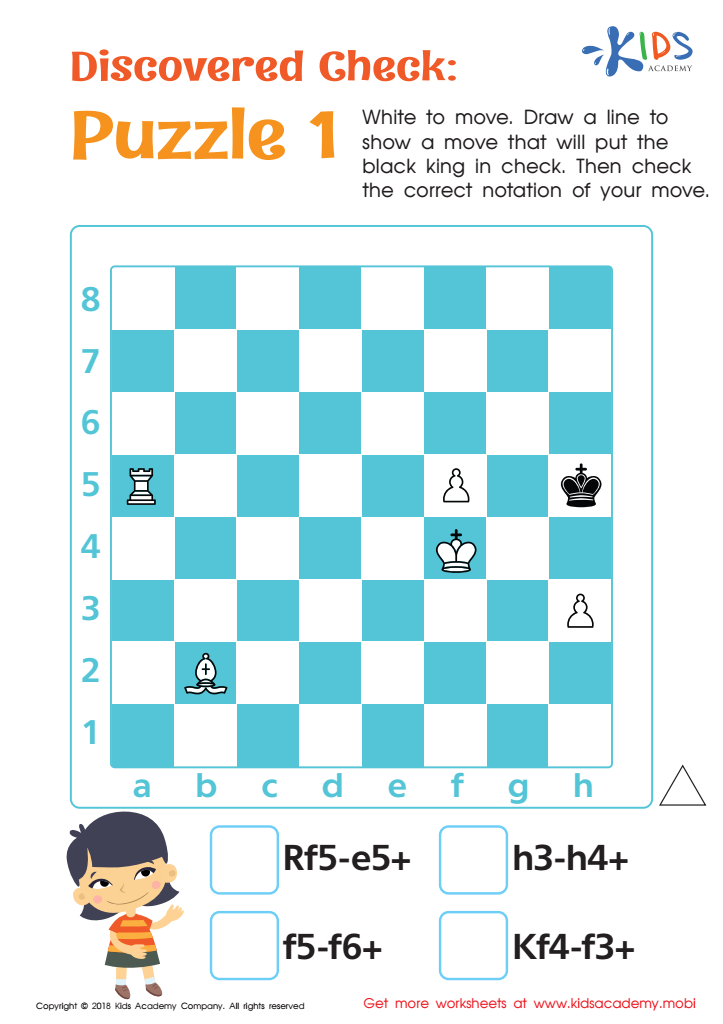

Discovered Check: Puzzle 1 Worksheet
Introducing chess strategy to 6-year-olds can be highly beneficial, fostering essential cognitive, emotional, and social skills that form the foundation for lifelong learning. At this developmental stage, kids are exceptionally receptive to new concepts and are building critical thinking abilities. Chess, often regarded as the "game of kings," enhances memory, attention to detail, and problem-solving skills.
By learning strategies, children exercise both their analytical and creative faculties. For example, identifying patterns, predicting opponents’ moves, and planning multiple steps ahead enhances cognitive flexibility and foresight. Chess teaches kids patience, perseverance, and the importance of thinking before acting, which can positively influence decision-making in everyday life.
Socially, chess propels kids into environments where they must interact respectfully with peers and adults, encouraging turn-taking and good sportsmanship. It instills resilience, as they learn to cope with losses and celebrate wins graciously, laying a crucial emotional foundation.
Easy-to-understand strategies simplify complex concepts into manageable chunks, making the game accessible and enjoyable. This early exposure can ignite a passion for learning and intellectual challenges, equipping youngsters with the skills and mindset to tackle academic and life pursuits with confidence.
Ultimately, by promoting chess strategy understanding, parents and teachers are investing in a child’s holistic development, ensuring they grow into well-rounded individuals adept at tackling various real-world problems.





